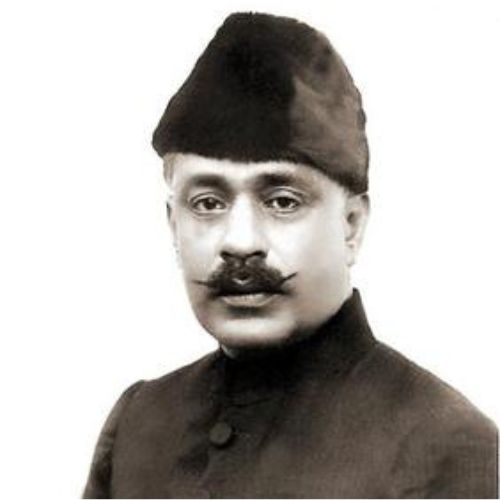Early Life
Nawab Mohammad Ismail Khan was an eminent politician and activist from the All-India Muslim League. He is often considered as one of the founding members of Pakistan because of his leading role in the Khilafat Movement and Pakistan Movement. He was also considered a close friend and confidant of Muhammad Ali Jinnah.
He was born in August 1884 in Meerut, present-day Uttar Pradesh. His father was Nawab Mohammad Ishak Khan of Jehangirabad and was the grandson of the Urdu and Persian poet, Nawab Mustafa Khan Shefta.
He completed his early schooling in India and moved to England at the age of 12 to continue his education as a full-time boarder at Tonbridge School in Kent. He finished his university studies at St John’s College, Cambridge and became a barrister of the Honourable Society of the Inner Temple (Inns of Court School of Law).
In 1908, he returned to India at the age of 24 and began practising law. His father, who was serving as a judge in Allahabad, was friends with Pandit Motilal Nehru. This friendship allowed Ismail Khan to begin his law career as an assistant lawyer to Motilal Nehru and also stay with the Nehru family at Anand Bhavan.
He served two terms as Vice-Chancellor of Aligarh Muslim University between 1934-35 and 1947-48 and remained as one of its trustees for many years.
Role in India’s Independence Movement
Ismail Khan was integral in representing the interests of Indian Muslims during the Independence movement. He became a member of the Working Committee of the Muslim League in 1910 – a position he held for more than four decades. During his time with the Muslim League, he was also elected to the Central Legislative Assembly in 1923 from United Provinces. He presided over the All-India Khilafat Committee in the Assembly, registering his opposition to the Indian National Congress campaign for Swaraj through civil disobedience.
In addition to this, he was the head of the following organisations: the All-India Muslim Civil Defence Association, the Parliamentary Board, the All-Parties Muslim Conference and the Unity Board.
His role in the Khilafat Movement involved travelling the country to convey the meaning of the movement to people. He worked closely with Congress leaders during this time, but was only supportive of demands that supported Indian Muslims.
Ismail Khan was a member of the founding committee of Jamia Milia Islamia University, established in 1920 on the foundation of anti-colonial Islamic activism and pro-independence influences of western educated Indian Muslims.
Khan was in close correspondence with Jawaharlal Nehru, despite his alliance with Jinnah. This became a sore point in their friendship and prompted Jinnah to demand that Ismail Khan cease the correspondence immediately. In a display of his independent and opinionated nature, the Nawab briefly resigned from the Working Committee, but was persuaded to re-join by Liaquat Ali Khan.
Contribution to Constitution Making
Ismail Khan was elected to the Constituent Assembly from United Provinces as a member of the Muslim League. He was one of the 28 members of the Muslim League in the Assembly, not to be confused with Muhammed Ismail Sahib from Madras. He was not a member of any committee.
In the debate to approve the Advisory Committee’s report on Minority Rights, the Nawab enquired about separate electorates for Indian Muslims. Unlike his namesake from Madras, Ismail Khan was against the provision of separate electorates, arguing that it was not a necessary safeguard for the rights of the Muslim minority in India.
Later Contributions
Despite being a key proponent of the Pakistan Movement, Ismail Khan chose to stay back in India post-Independence. Although several people tried to convince him to move to Pakistan including then Prime Minister Liaquat Ali Khan, he wanted to remain in India to continue advocating for the interests of Indian Muslims. He also continued to be a member of the Legislative Assembly after Independence.
Khan died on 28 June 1958 in Meerut and was buried at his family graveyard at the shrine of Nizamuddin Auliya.
Khan’s residence, the historic Mustafa Castle, was built by his father as a memorial for his grandfather. This residence was a bustling centre of political activity during the Independence Movement and was the headquarters of the Uttar Pradesh Muslim League. It also temporarily housed several prominent leaders including Mahatma Gandhi, Nehru, Sarojini Naidu and Jinnah.
Ismail Khan made some observations in the debates on minority rights on the issue of separate electorates for Muslims.
- The Reorganization of the All India Muslim League under the Quaid-i-Azam by Ansar Zahid Khan
- All India Muslim League; split and reunification by Abdul Razzaq Shahid

